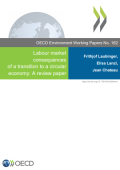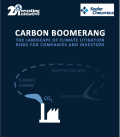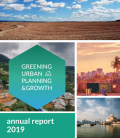
This report presents a review of existing literature on the labour market, employment, and skills implications of the transition to a more resource-efficient and circular economy.

Climate-related litigation risk is the long-term risk that lawsuits targeting companies with high cumulated past emissions create liabilities, based on the company’s share of responsibility in the cost of global warming. It is not limited to direct emissions and likely to occur in countries where extra-territorial jurisdiction and class action lawsuits exist. The tort cost could include adaptation costs at the local level for states and cities (invested by anticipation), thus shortening the time horizon of risk from the years 2050-2100 to today. This concept note focuses on this type of risk.
This toolkit provides comprehensive information on eight different policy areas that states and localities can consider as they work to reduce food waste. The toolkit can be utilized by legislators, advocates, food donors, and food recovery organizations to call for policy changes.
This report outlines ATLAS’ five years’ progress on helping the Agency integrate climate adaptation across its portfolio, building the climate resilience of national partners, and strengthening methodologies to assess and respond to climate impacts in sectors as diverse as health, urban planning, transport and water management.

In 2019, GGGI’s work program on green cities included support for green growth plans and policies, green investments, and capacity building activities and knowledge products across 13 countries. This 2019 Annual Report features stories on green cities from Uganda, Myanmar, Cambodia, Fiji, Lao PDR, Mongolia, Peru, the Philippines, and Rwanda.
